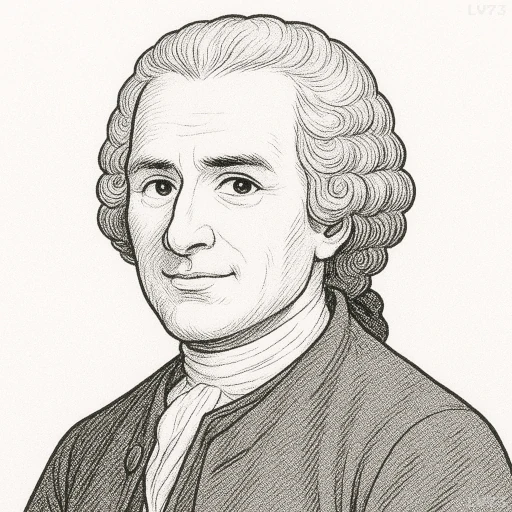“I undertake the same project as Montaigne, but with an aim contrary to his own: for he wrote his Essays only for others, and I write my reveries only for myself.”

- June 28, 1712 – July 2, 1778
- Born in Geneva
- Philosopher, political philosopher, writer, composer
table of contents
Quote
“I undertake the same project as Montaigne, but with an aim contrary to his own: for he wrote his Essays only for others, and I write my reveries only for myself.”
Explanation
In this quote, Jean-Jacques Rousseau compares his work to that of the French philosopher Montaigne, particularly in the context of self-reflection and personal writing. Rousseau acknowledges that he is engaging in a similar project to Montaigne, who famously wrote his Essays as a way of sharing his personal thoughts and reflections with the public. However, Rousseau points out that his own writings, which he refers to as “reveries”, are primarily for himself—an exploration of his own inner thoughts, experiences, and emotions. Whereas Montaigne’s work was intended to engage and communicate with others, Rousseau’s focus is more inward, serving as a form of personal reflection rather than public exposition. This distinction highlights Rousseau’s desire to engage in a more private, introspective process of writing, one that is about self-exploration rather than social commentary.
Historically, this view reflects Rousseau’s broader approach to philosophy and writing. He was known for his autobiographical works, like The Confessions, where he exposed his innermost feelings and life experiences. Unlike many thinkers of his time, Rousseau was deeply interested in exploring the individual self and the emotions that drive human behavior. He was less concerned with constructing formal arguments or communicating ideas to an audience, and more focused on understanding his own inner world. This stands in contrast to Montaigne, whose work was both reflective and conversational, aiming to engage readers in a broader dialogue about the human condition.
In modern contexts, Rousseau’s approach to writing resonates with current trends in personal journaling, memoirs, and autobiographical exploration. The idea of writing for oneself—self-expression through personal reflection and emotional exploration—has become more prominent in contemporary practices of creative writing, therapy, and mental health. Rousseau’s desire to write for himself rather than for an audience reflects the modern emphasis on self-discovery, personal growth, and the importance of introspection as a way of understanding oneself in an increasingly complex and social world.
Would you like to share your impressions or related stories about this quote in the comments section?
